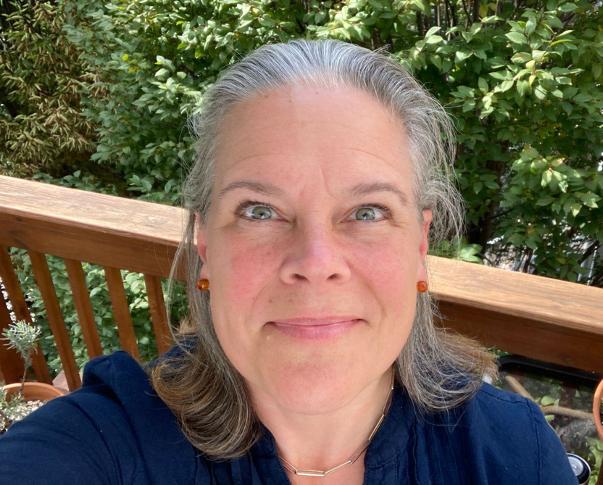Sarah Jencks

Sarah Jencks
Professorial Lecturer in Museum Studies
Programs: Museum Studies
Contact:
Bio
As founder and principal consultant of Every Museum a Civic Museum, LLC, Sarah Jencks works with museums and museum educators to help them articulate their authentic civic missions and envision the possibilities for igniting and enacting the collective impact of museum education in our democratic republic. She believes that every museum can and should be a civic museum, and science-backed playful learning is crucial to that mission. Current and recent clients include the Colonial Williamsburg Foundation, King’s Chapel in Boston, Preservation Maryland, The Montpelier Foundation, the International Coalition of Sites of Conscience, and the Lincoln Presidential Foundation. With consultants Rebecca Shulman and Kristin Scarola, Sarah convened the Fostering Historical Curiosity through Play cohort, made up of nine history museums and sites exploring creating family learning spaces at their sites, in particular when Hard History is involved. Sarah is Co-Chair of the Community Learning Partners Task Force of Educating for American Democracy, where she has assembled a coalition of more than 200 museum professionals across the country to integrate inquiry-based civic learning into their professional practice.
From April 2022 to September 2023, Sarah was the Lead for Museum Learning at The History Co:Lab, a social venture that builds formal and informal learning ecosystems to address systems issues in education with a specific focus on interpreting history, democracy and civic learning. For almost 15 years, Sarah served as the inaugural Director of Education and Interpretation at Ford’s Theatre, where she created and scaled a suite of highly regarded initiatives and resources that made Ford’s a beacon for conscientious educators around the country. She is an instigator of Teacher InSites, through which 50+ cultural organizations level-set and articulate common practices about working with teachers. Sarah was Co-Chair of the AASLH 2022 Annual Meeting Program Committee, Chair of the AASLH Educators and Interpreters Committee (2020-2022), is a member of the former EdCom Professional Network steering committee, and has served as a field reviewer for both IMLS and NEH. Sarah is a member of Citizen University’s National Civic Collaboratory. She has contributed chapters to books on museum education, teacher professional development at historic sites, and emotion in historical spaces. She served on the boards of the National Council for History Education and Literacy InterActives, an African-American history organization in Southside Virginia.
Sarah’s expertise includes the following:
- Educating for American Democracy roadmap in museums and culture spaces - Sarah is co-chair of the EAD Community Learning Partners task force and has led efforts to develop tools that make integrating the roadmap into programs, resources and exhibits more user-friendly, including developing a deck of cards (in process) that feature EAD Overarching Questions.
- Place-based learning - Learning in and through places, and learning using local history as a point of entry to larger stories, are central to my practice. Whether using Ford's Theatre as a way to understand Civil War Washington (as I did for many years), or finding sites and stories in your community that can open up bigger topics, place-based learning grounds history in a sense of belonging that we now know is crucial to the science of learning. Using place to teach requires pedagogies that are rigorous and specific, I can help your site develop programs and exhibitions that use these techniques.
- Learning science of play - In the last ten years, researchers have become increasingly clear that guided playful learning experiences are the most effective way for young people to learn. Researchers like Kathy Hirsh-Pasek and Roberta Golinkoff have offered a clear call to schools and communities to change the way we do school. Museums are well positioned to lead the way in creating playful learning experiences, and understanding the research makes it much easier to advocate for play in exhibitions and programs.
- Stemming from my service as co-chair of the 2022 program committee for the American Association for State and Local History, I have worked with a network of colleagues to advocate for the teaching and interpretation of honest, or whole, history - in particular those stories that have long been untold - whether ignored or hidden. Working with descendants and in archives, we find and shine light on their stories. I do this work in my personal life through board service with Literacy InterActives and the National Council for History Education, as well as in my professional life with EMCM.

